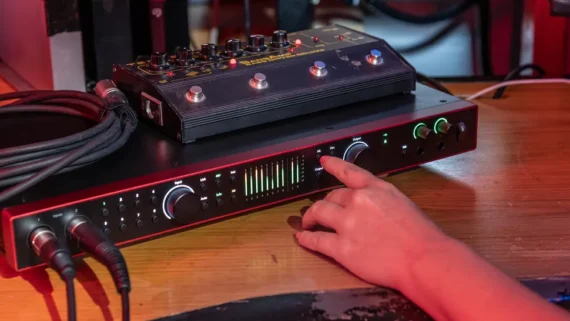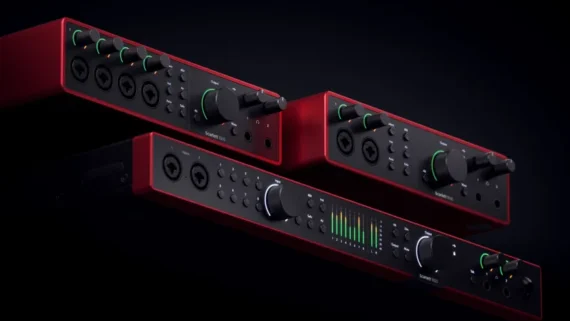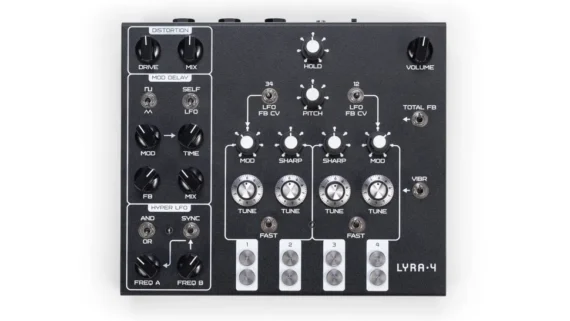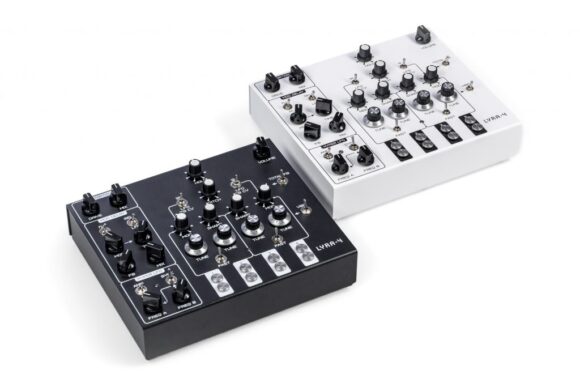Focusrite Intros Three New Scarlett Its 4th Gen Audio Interfaces
Focusrite has added three new models to its 4th Gen Scarlett range of audio interfaces. The Scarlett 16i16, 18i16, and 18i20 sit at the top end of the range, adding additional analogue and digital ins and outs while retaining updated features previously added to the 4th gen Solo, 2i2 and 4i4 devices.
Feature highlights include a promised 122dB dynamic range courtesy of Focusrite’s RedNet converters, an Air function with both Presence and vintage-inspired Harmonic Drive modes, and newly remote-controlled preamps with 69db of gain.
Auto Gain and Clip Safe functions are designed to simplify setup by analysing incoming audio and setting levels accordingly. All three interfaces are also compatible with Focusrite’s Control 2 app, for desktop or mobile, which allows users to control the inputs and monitoring.
The 16i16 has a total of 16 inputs with two preamps and the 18i16 has 18 ins, four of which are equipped with preamps. Both have 16 outputs. The rack mountable 18i20, meanwhile, ups the outputs to 20 and adds a talkback mic and A/B speaker switching.
Focusrite describes its 4th Gen upgrades as “a giant leap for the world’s most popular audio interface range.” “Although they look similar, the new Scarletts are slicker audio interfaces with better specs and more options. All three are worthy upgrades and highly recommended.”

All Scarlett interfaces come with Ableton Live Lite, three months of Pro Tools Artist subscription, and six months of FL Studio Producer Edition, as well as a selection of software from Focusrite, Softube, Native Instruments, Antares, and others. Users also get five free masters from AI-based service Landr, plus a two-month subscription to Landr Studio, offering music distribution on streaming platforms including Spotify, Apple Music and YouTube Music.

All three interfaces available to pre-order now, will be available from mid-October. The Scarlett 16i16 is priced at $369.99, the 18i16 is $499.99 and the 18i20 is $749.99 on Amazon site. Find out more at the Focusrite site.




